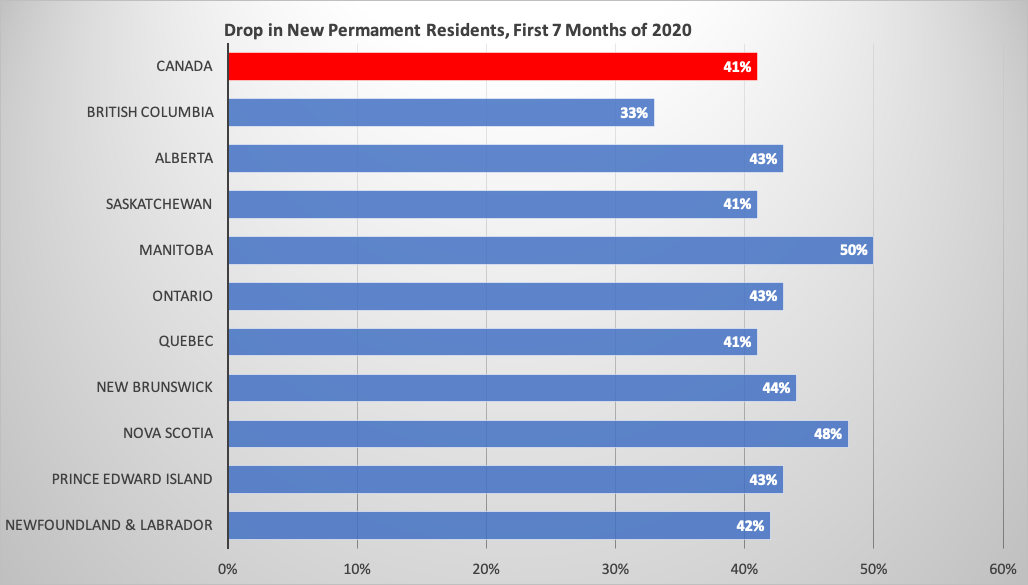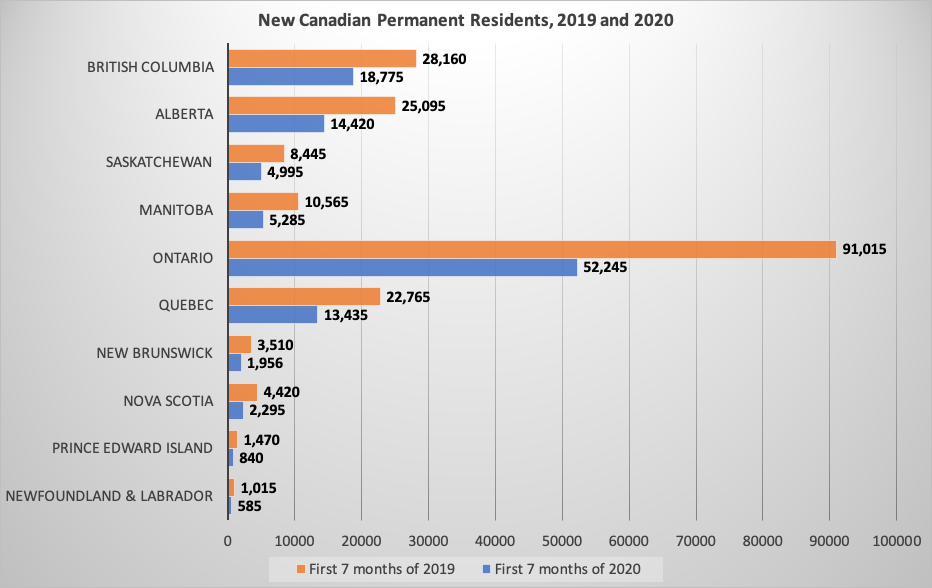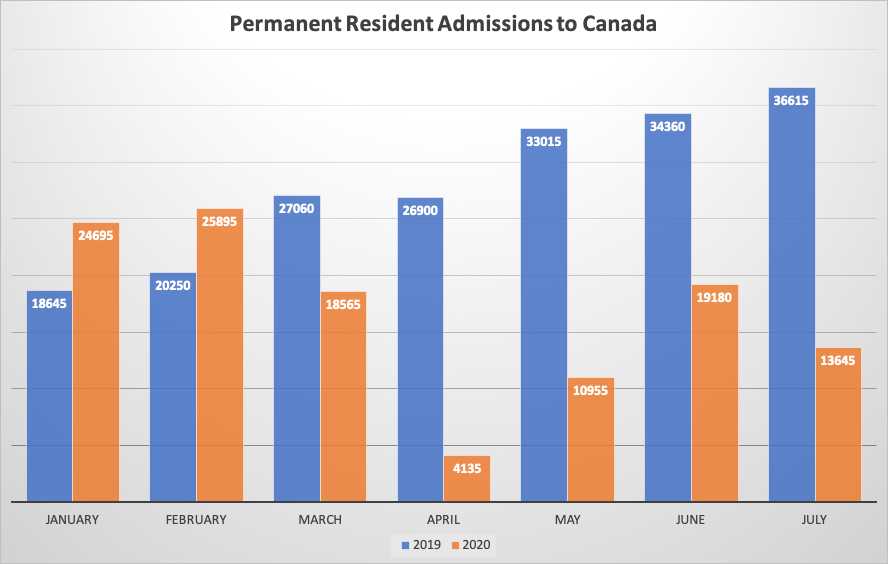
The first seven months of 2020 saw nine out of 10 Canadian provinces record a drop in immigration above 40 percent, the latest figures show.
The only province to record a drop below the 40 percent mark was British Columbia, where immigration fell 33 percent between January and July 2020, compared to the same period of 2019.
By comparison, Manitoba saw the biggest percentage drop, welcoming almost exactly half the number of new permanent residents in 2020 compared to 2019.
Read More
Canada’s Coronavirus International Travel Restrictions Extended to End of September
Canada Adds Nearly 420,000 Jobs in July to Continue Coronavirus Recovery
All the Ways Canada is Helping International Students Hit by Coronavirus Crisis
The figures show how the COVID-19 pandemic has decimated Canada’s plan to bring in 342,000 new immigrants this year, with the national average over the first seven months down 41 percent on the same period of 2019.
All of the decreases were concentrated in the four months most affected by COVID-19 restrictions, namely April, May, June and July.
Until restrictions were imposed in mid- to late-March, the number of new permanent resident admissions in 2020 had exceeded 2019.
Figures for the first quarter of the year show 69,160 newcomers were welcomed in 2020, compared to 65,955 in 2019.
But the numbers plummeted from there.
In the second quarter of 2020, Canada welcomed 34,270 new immigrants, compared to 94,275 in 2019, representing a decline of 64 percent.
Despite the low numbers of coronavirus cases in Atlantic Canada, the percentage decrease of new permanent residents were the second and third highest in Nova Scotia and New Brunswick, which dropped 48 percent and 44 percent respectively.
Ontario at Sharp End
The real numbers serve to further highlight the reduction in permanent resident admissions.
In Ontario, for example, the figures dropped by 43 percent compared to 2019, but that represented a reduction of nearly 39,000 newcomers in Canada’s most populous province.
Ontario’s drop in immigration in the first seven months of 2020 is more than the total of every other province for the first seven months of 2019, illustrating the domination it has in welcoming new permanent residents.
On a month-to-month basis, Canada immigration numbers dropped off in July, halting the recovery seen in May and June.
Figures show 13,645 new permanent residents were admitted during the month, nearly 30 percent down on the 19,180 admissions in June.
July’s figures are also dramatically down on the same month of 2019 when 36,615 new permanent residents were admitted.
International travel restrictions due to coronavirus are still in place and the Canada-U.S. border is still closed.
New ‘arrivals’ can either be candidates already in Canada transitioning from a temporary status, or those from overseas who were approved before March 18.




